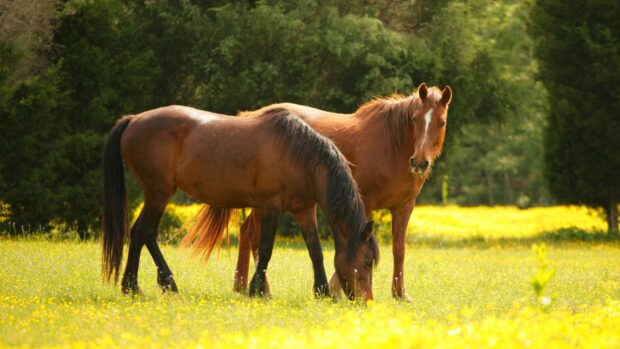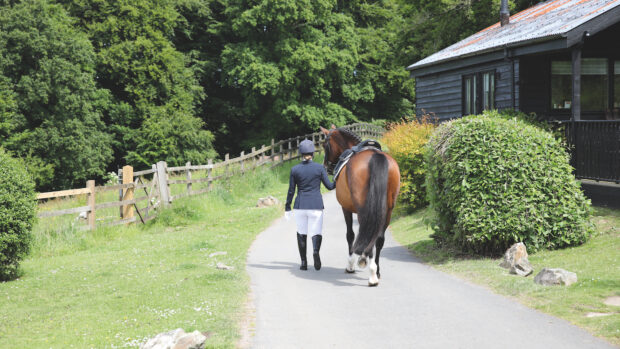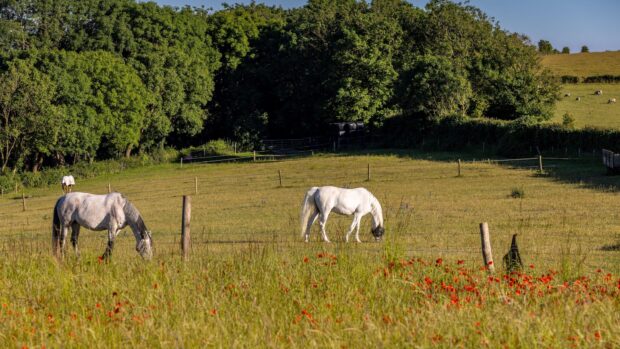Two horse owners from Somerset have pleaded guilty to causing unnecessary suffering to two equines after one was found with flesh “eaten away by maggots”.
Colin and Hayley Loader, of Landseer Crescent, North Cheriton, appeared before Somerset Magistrates earlier this month (11 March).
The couple admitted to causing unnecessary suffering to a piebald gelding called Shamrock and bay Exmoor gelding called Smudge (pictured top).
Both animals had to be put down due to the extent of their suffering and ailments.
The court heard that the RSPCA was alerted to concerns about the horses in October 2014. The couple claimed they couldn’t afford veterinary care.

Shamrock’s back legs were infested with maggots
When visiting the ponies, RSPCA inspector Marie Griffiths found Shamrock in a “terrible state”. His back legs had a large maggot infestation, which was eating away the flesh.
The flesh was so rotten that one hoof had started to separate from the leg.
Smudge was suffering from severe laminitis and could not move. The pedal bone in one hoof had rotated, causing considerable pain.
Vets believe that Shamrock and Smudge had been suffering for around three months before the RSPCA arrived.
“I could not believe the state these horses were in. Shamrock’s wounds were horrific,” said Inspector Griffiths. “His flesh was being eaten away and the smell was terrible. His condition was so poor that vets decided the only thing to do to relieve his suffering was to put him to sleep.
“We tried our best with Smudge over some time, but nothing was helping. The laminitis had got to the stage that he was in so much pain he too had to be put down.
“We do understand that people can find themselves unable to afford veterinary treatment, but we all need to understand that it is our responsibility as owners to make sure our animals get treatment as soon as possible and certainly before it ever gets to the stage where they are suffering.”
The case has been adjourned until 7 April, 2015.




